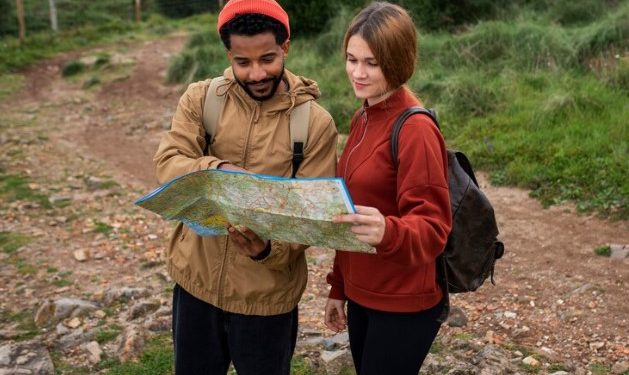A mission trip to Kenya presents an array of experiences for those looking to engage with diverse communities and participate in volunteer work in Africa. Kenya, renowned for its picturesque landscapes, wildlife, and vibrant cultures, offers a unique backdrop for mission work. Volunteers often find themselves immersed in collaborative projects ranging from educational programs in bustling Nairobi to community development initiatives in rural areas.
While enthusiasm is a key ingredient for embarking on such an expedition, thorough planning is essential to ensure that mission objectives are met. Detailed preparations must be undertaken, which include understanding cultural sensitivities, obtaining necessary vaccinations, and coordinating with local organizations or churches. Mission activities can vary widely but often include building relationships through community outreach, participating in construction, or assisting with local education efforts.
Key Takeaways
- Kenyan mission trips involve cultural immersion and volunteerism.
- Successful missions require careful planning and coordination.
- Adequate preparation and packing are vital for a productive mission trip experience.
Planning Your Mission Trip
Preparing for a mission trip to Kenya requires attention to detail and careful planning. Understanding travel logistics, health precautions, and budgeting are crucial steps in ensuring a smooth experience.
Securing Travel Documents
Before embarking on a mission trip to Kenya, ensuring that all travel documents are in order is a vital first step. Travelers must have a valid passport, often needing at least six months of validity beyond the travel dates. Due to the increased wait times for processing, it’s recommended to apply for or renew a passport well in advance using the appropriate rush services if necessary. A Kenyan visa is required for entry, which can typically be obtained in advance or upon arrival depending on one’s nationality.
Health and Safety
Maintaining health and safety is a priority during your trip. Travelers should consult with a healthcare provider to receive necessary vaccinations for diseases such as Yellow Fever, Hepatitis A, Typhoid, and consider a prescription for malaria prophylaxis. Additionally, access to safe drinking water is essential; therefore, planning for and using bottled water is advisable to avoid waterborne illnesses.
Financial Considerations
The trip cost encompasses numerous aspects such as airfare, meals, transportation, and potentially travel insurance which is highly recommended. Budgeting thoughtfully for these expenses is key to a successful trip. Looking into various airlines and checking when booking flights might be cheaper can lead to significant savings; refer to expert advice on the best day to book flights. Additionally, factor in upfront costs such as a deposit and any application fees when planning financially for your mission.
Mission Activities
Mission trips to Kenya are opportunities for participants to actively engage in various impactful activities. Each activity is designed to meet the physical, spiritual, and social needs of the local communities in meaningful ways.
Spiritual Outreach
Spiritual outreach is a central component of mission trips, focusing on spreading the Gospel and conducting Bible studies. Volunteers may participate in evangelism initiatives to share their faith with individuals and families. Programs like Vacation Bible School (VBS) provide spiritual education for children and youth, nurturing their understanding of biblical teachings. Supporting local churches in their ministry efforts often includes teaming with community leaders to pray for and with those experiencing hardships.
Community Service
In the realm of community service, mission teams often contribute to improving living conditions by participating in construction and education projects. This could involve building homes for families in poverty or enhancing facilities for orphans and widows. Educational efforts might range from teaching English to providing vocational training to students, thereby investing in the community’s future.
Cultural Exchange and Interaction
Cultural exchange and interaction enrich both visitors and hosts. Volunteers are encouraged to immerse themselves in Kenyan culture and daily life, fostering a mutual understanding and respect. This may involve staying with host families, participating in local church services, and engaging with students and youth in cultural activities. Through such interactions, mission trip participants gain a deeper appreciation for the diverse lifestyles and values within Kenyan society.
Throughout these activities, participants often find their perspectives broadened and their commitment to service deepened, reflecting insights similar to those in volunteering guides. Furthermore, logistical aspects such as missionary travel basics or understanding humanitarian airfares can be essential for those planning their journey. A list of useful links for evangelists may provide additional resources relevant to mission activities in Kenya.
Preparation and Packing
Proper preparation and packing are essential for a successful mission trip to Kenya. Ensuring you have all the necessary items and have taken care of personal health care and logistical arrangements will allow you to focus on the purpose of your trip upon arrival.
Necessary Items
For any mission trip, certain items are indispensable. A camera can capture moments and scenery for memories and storytelling. However, keep it secure and be considerate of when and where to use it. Always bring a notebook and pen to jot down important information or reflections during your travels. Appropriate clothing like T-shirts is essential due to Kenya’s climate, and personal supplies such as a sturdy backpack will keep your belongings in check. While packing, consider using organizing items in labeled bags to ensure you can easily find what you need.
Personal Health Care
It’s crucial to maintain your health during the mission trip. Pack personal medication and lip balm—the equatorial sun can be harsh. Verify that you have the necessary immunizations for travel to Kenya. Always have means to access safe drinking water, and understand the location of healthcare facilities in relation to your lodging and accommodation.
Logistical Arrangements
Plan your in-country transportation carefully to ensure that you can navigate between different churches and communities efficiently. Confirm all details about where you’ll stay; secure and comfortable lodging can greatly impact your trip’s effectiveness. Additionally, knowing how you’ll manage supplies distribution for your mission is important.
Remember that every item you pack should have a purpose, and staying organized is key for a trouble-free journey.















